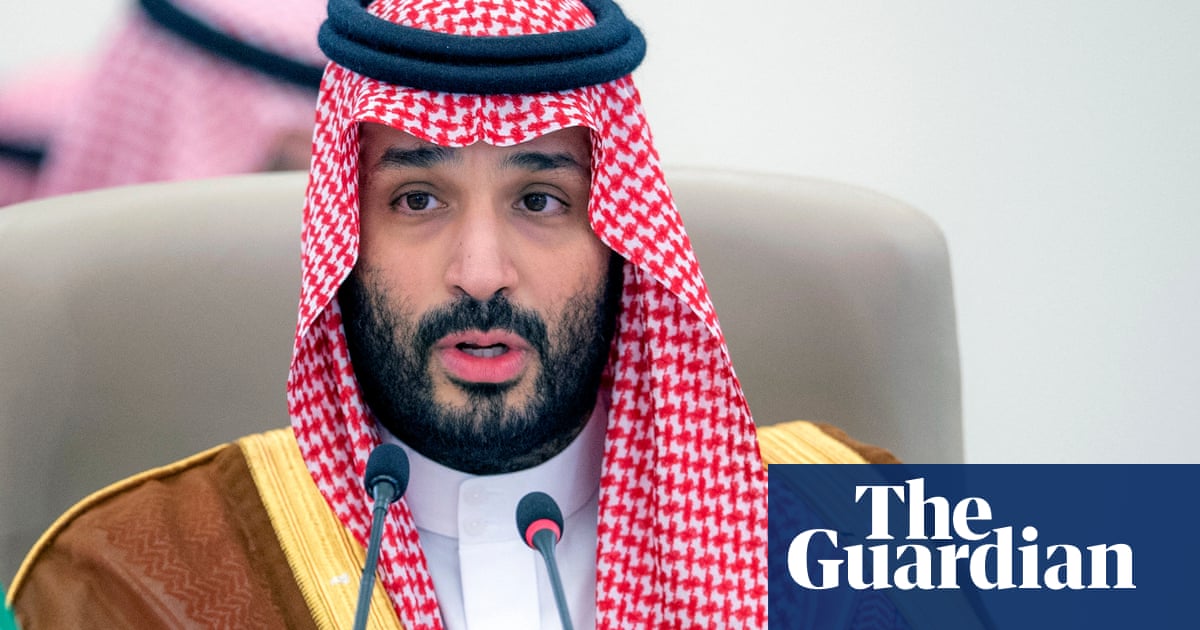
A potential normalisation deal between Israel and Saudi Arabia, and what those negotiations could mean for the Palestinians, are top of the news agenda in the Middle East after the two countries and the US signalled progress on the matter on the sidelines of the UN general assembly in New York.
In a rare interview with western media, Riyadh’s powerful crown prince, Mohammed bin Salman, told Fox News on Wednesday that ongoing talks with Israel meant the prospect of normalised relations was “getting closer every day”.
Asked what it would take to establish formal relations with the Jewish state – a former taboo in the Arab world – Prince Mohammed said: “For us, the Palestinian issue is very important. We need to solve that part.”
Under the auspices of the Biden administration, which is gunning for a major foreign policy achievement before next year’s elections, Riyadh is exploring an agreement to normalise relations with Israel in return for a formal defence pact with the US and assistance in developing a civilian nuclear programme.
Israel has grown closer to its neighbours in recent years over their shared concerns about Iran. Since 2020, in agreements brokered by Donald Trump’s administration, the UAE, Bahrain, Morocco and Sudan have agreed to normalise relations despite the ongoing occupation of the Palestinian territories.
But Saudi Arabia, the Sunni Muslim world’s geopolitical linchpin, has so far held out on recognising Israel until the conflict with the Palestinians is resolved. Palestinian officials say the Abraham accords, as they are known, deeply undermine the prospect of peace and a two-state solution.
The crown prince’s comments came shortly after a meeting between Joe Biden and the Israeli prime minister, Benjamin Netanyahu, on the sidelines of the UN general assembly in which both leaders voiced optimism about such a deal.
Netanyahu’s office said afterwards that the meeting “mostly dealt with ways to establish a historic peace agreement between Israel and Saudi Arabia, which could greatly advance an end to the Arab-Israeli conflict and facilitate the establishment of an economic corridor to link Asia, the Middle East and Europe.”
The White House said that the two leaders “consulted on progress toward establishing a more integrated, prosperous, and peaceful Middle East region, including through efforts to deepen and expand normalisation with countries in the region.”
On Thursday, Israel’s foreign minister, Eli Cohen, told the country’s Army Radio that relations with Riyadh could be established by the first quarter of 2024 – ample time for such a deal to be ratified by both the US congress and senate before November’s presidential ballot.
Army Radio also reported that Netanyahu had asked his defence ministry to explore ways in which Riyadh enriching uranium could affect the fledgling relationship between the two countries.
Ahmad Deeq, of the Palestinian foreign ministry, told Radio Nas: “The Saudis have told us in closed-door meetings and openly that they will [demand] an agreement that is based on the establishment of a sovereign Palestinian state.”
There was no other immediate comment from Palestinian Authority (PA) the semi-autonomous government in the occupied West Bank.
Riyadh and Tel Aviv still face many hurdles in establishing formal relations. The occupied West Bank is engulfed in the worst violence for 20 years, and the corrupt PA is deeply unpopular with the Palestinian public.
Any concessions to the Palestinians are also completely unpalatable for Netanyahu’s far-right coalition partners, who have vowed to annex the entire West Bank.
In their meeting on Wednesday, Biden asked his Israeli counterpart to stem the deteriorating conditions in the Palestinian territories. He also reiterated “concern about any fundamental changes to Israel’s democratic system, absent the broadest possible consensus”, in a reference to Israel’s massive domestic crisis sparked by the hardline government’s proposed overhaul of the judiciary.
Since entering office in 2021, Biden has been forced to reengage with Saudi Arabia after branding the kingdom a “global pariah” over the murder of the journalist Jamal Khashoggi in 2018. Russia’s invasion of Ukraine sent the global oil markets into chaos: Saudi Arabia is home to the second largest proven oil reserves in the world, and is the producer with the biggest influence on its price.









